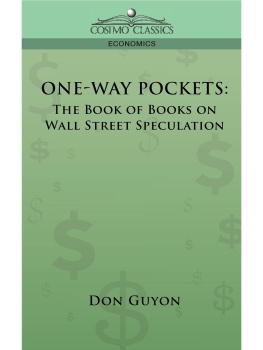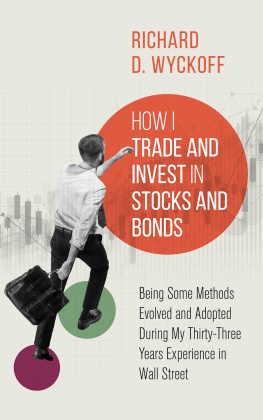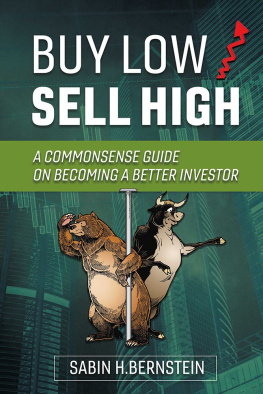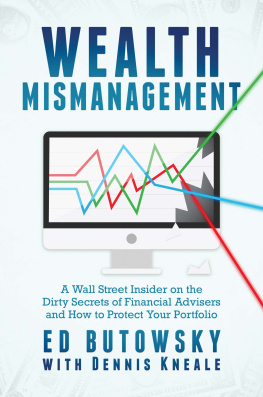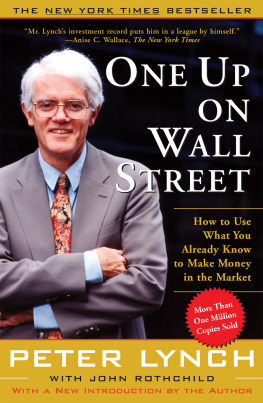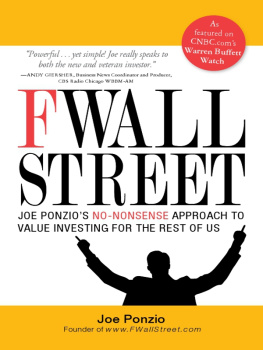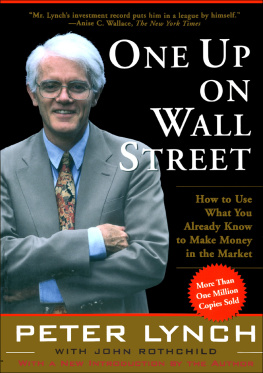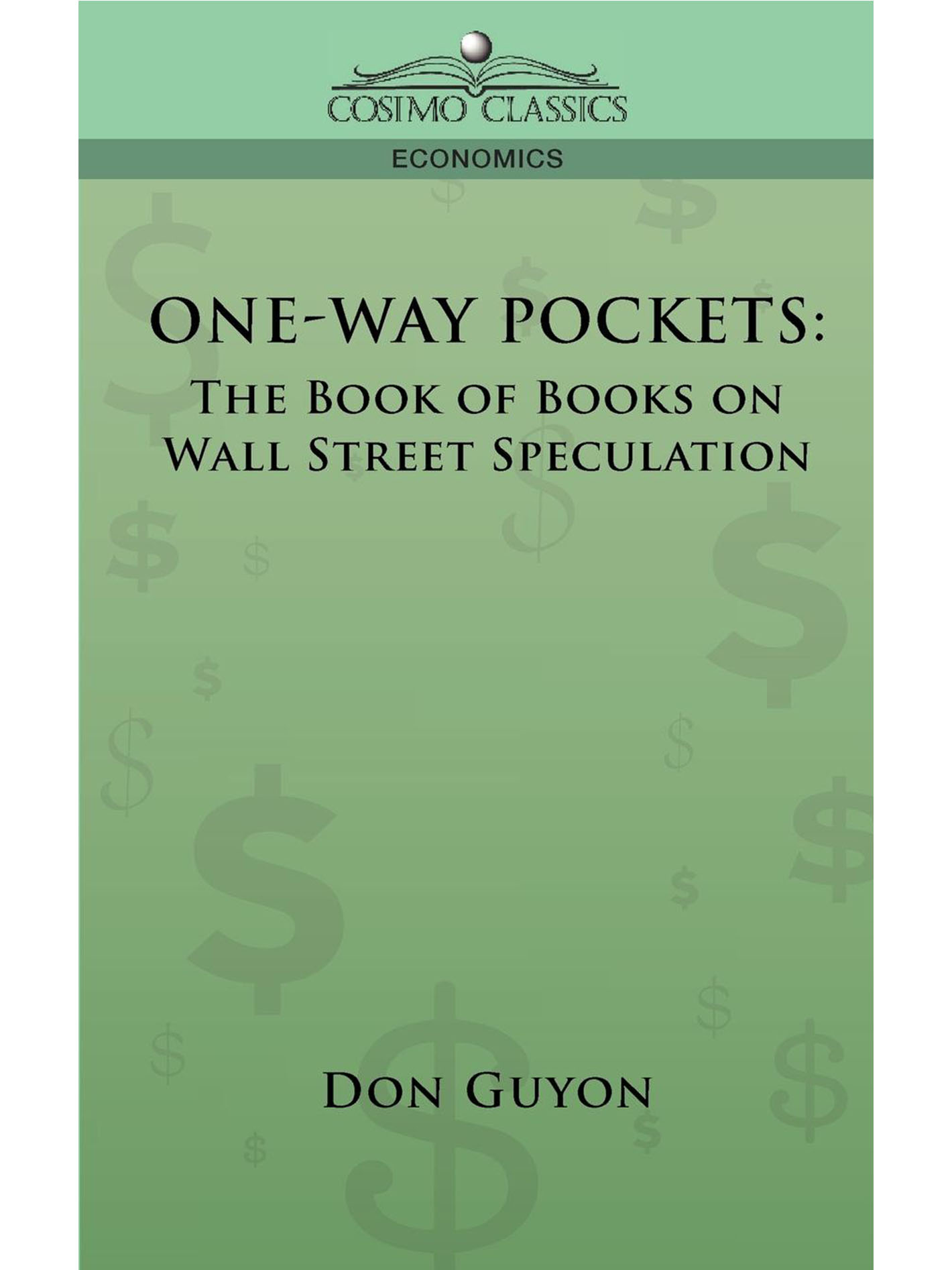All rights reserved. No part of this book may be used or reproduced in any manner whatsoever without prior written permission except in the case of brief quotations embodied in critical articles or reviews.
ONE-WAY POCKETS
The Ninety-five Per Cent
A T the fag-end of the never-to-be-forgotten war brides market, or, to be more exact, in December, 1915, I began in a casual sort of way to analyze the accounts of half a dozen of the firms most active traders. Like the great majority of our customers, these traders had been bullish on the munition and standard industrial stocks during the great speculative boom of that year, and now, with the stocks in which they had been operating up from 15 to 100 points each, their profits were relatively small and their commitments larger than at any preceding stage of the movement.
This in itself was not a Wall Street phenomenon. The same condition prevailed in most of our active accounts and, in fact, had prevailed at the top of every bull market throughout my experience in the brokerage business. It was obvious that the precepts so sagely laid down by writers of market letters and authors of works on speculation had been disregarded or forgotten by the public. The latter had been told time and again to buy securities when they are low and to sell them when they are high; to take small losses; and large profits; to avoid over-trading, and to do many other equally indefinite things which seem so easy to do when one embarks on a speculative venture that all thought of actually doing them is soon forgotten.
These venerable Wall Street dos and donts have always reminded me of the Stop! Look! Listen! signs encountered on a days motor trip, whose number and sameness cause them to be disregarded. If, instead of carrying the hackneyed warning, one sign should announce Trains average a mile a minute here, and another, Two auto parties killed at this crossing last year, the rate Of mortality among motorists might show a falling off.
In the same way, speculative advice and trading rules, to be given proper consideration, ought to be definite and based on specific data. This was one of the things that I had in mind when I started upon an analysis of these particular accounts. Another was that the only speculative method that would prove profitable in the long run must be the reverse of that followed by the consistently unsuccessful public.
Of course, the public has no fixed method of trading, but its collective operations must be wrong in principle or else more than five per cent. of the average brokerage firms customers would be able to survive a complete market cycle. The reader who thinks that five per cent. is a low estimate of survivors should ask his broker how many, if any, active accounts showed net profits made during the period in which Steel moved from par to above 136 and back again. Even the liberal extra dividends paid on this greatest and most popular of securities failed to offset the speculative blunders commited by those who traded in it.
A Speculative Delusion
It is far more important, to my way of thinking, to know when a poor quality of buying or selling goes into the market than to be apprised of the operations of the large financial interests ; yet one has only to whisper the magic words good buying or good selling to gain the immediate attention of any Wall Street speculator. The circulation of a mere rumor that the Morgan interests are accumulating Steel or that the Standard Oil crowd is getting out of St. Paul is sure at any time to create a market following. Most of the tips that are hawked about the Street are based on the supposition that somebody-or-other of consequence is buying or selling certain stocks.
I do not know of a single case where anyone has been able to make money consistently by following information of this character, even when the information comes to him first hand.
There are two fundamental and a dozen incidental reasons why it can not be done. One of the fundamental reasons is that even a broker who is executing orders for a large pool or individual operator can not tell whether his client is actually buying or selling on balance. A dozen other brokers may have been given buying or selling orders in the same stocks by the same interests and these orders are placed in so circuitous a manner that only the operator himself knows what has happened at the close of the day.
An equally important objection to following good buying or good selling is that while it may eventually prove profitable in the case of the principal, it is likely to prove highly unprofitable to anyone who attempts to turn it to his own speculative advantage.
For example, in the summer of 1917 certain capitalists bought Union Pacific heavily around 130 because they considered it intrinsically cheap there or desired to support the market. They were able to carry it without inconvenience through the subsequent decline and to buy more at lower levels. Eventually they will sell this stock at a profit, but speculators, playing for a turn rather than a long pull, who followed this good buying, were, of course, compelled to take substantial losses.
One of the big pools in Steel began to get rid of its holdings when the stock was selling at about 120, but this did not prevent Steel from rising to 136, nor did it save several large traders, who were cognizant of the character of the selling which had gone into the stock, from taking a severe drubbing on the short side.
The war stocks and many of the rails were well sold during the 1915-1916 bull market long before their top prices were reached, and in the great bear market of 1917 securities of an classes were well bought ten, twenty and thirty points above the figures which they eventually touched.
Looking at the matter from a somewhat different angle, it is well to bear in mind that even the best business and financial minds are not infallible in Wall Street, as witness the recent undoing of the New England statesman and multi-millionaire who had so many unfortunate investments in public utility securities, and, going back ten years, the evaporation of one of the great Standard Oil fortunes, possessed by as keen a financier as the history of the Street has known. Even the king of manipulators, the late James R. Keene, went broke three times, while John W. Gates, in spite of his early successes, quit the game a loser. Yet any speculator would have mortgaged his home to follow the market operations of these men.
Detecting Bad Buying and Selling
How, then, can the speculator who possesses only limited means hope to beat the Wall Street game by following buying and selling operations which he may consider to be good? The answer is that although he does hope to do so, he seldom succeeds.
Bad buying and bad selling, however, can be detected with a fair degree of certainty, and

